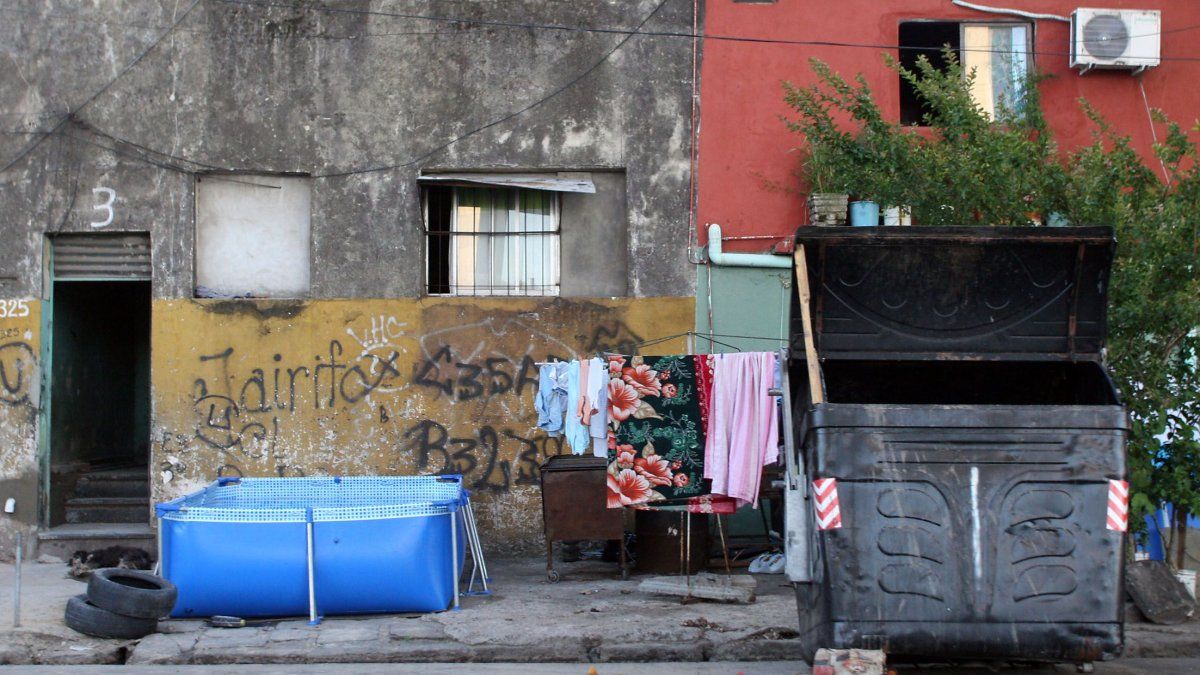In times of crisis, the truth becomes the most scarce good and, paradoxically, the most distorted. Political discourse, far from being a clarity tool, often becomes a Artifice designed to mold perceptions and hide uncomfortable realities. Javier Milei, an economist in president, has made this strategy a true discursive manipulation machineryin which data, figures and statistics are presented not as a reflection of reality, but as instruments of a prefabricated narrative.
Statement: “Poverty multiplied by 10 between 1974 and the end of 2023”
Analysis: This statement lacks academic rigor, since it compares current poverty data with those of the 1970s, ignoring the differences in measurement methodologies and variations in consumption baskets over time. According to studies from the Center for Distributive, Labor and Social Studies (CEDLAS), poverty in Argentina has fluctuated depending on economic crises and periods of growth, which invalidates a long -term direct and linear comparison. This without saying that there is a manifest intentionality in ignoring that during that period there were cycles of sustained growth, stagnation and abrupt falls; mixing everything.
Fiscal and quasi fiscal deficit
Statement: “We inherit 15 fiscal deficit points consolidated between the Treasury and the BCRA”
Analysis: Although the consolidated deficit was high, the 15% calculation of GDP includes components of the fiscal fiscal deficit that are not homogeneous in their measurement. According to data from the Ministry of Economy and the Argentine Institute of Fiscal Analysis (IARAF), the primary deficit at the end of 2023 was 2.9% of GDP, with a financial deficit of 4.6%.
Most of the quasi fiscal deficit comes from the monetary policy of the letters of the Central Bank (Lebac). You are in just 17 months of the Macri administration, they had doubled the monetary case and then the liquidity letters (Leliq); Both violated since 2016 precisely by the same current ministers Caputo and Sturzenegger, indicating that it is not attributable only to the previous administration, but rather to the current and repeated actors.
Exchange gap
Statement: “Currently, the gap between the official dollar and the alternative dollars is at 13%. We received the gap close to 150%”
Analysis: The reduction of the exchange gap is a direct consequence of a devaluation of 158% accumulated since December 2023. However, according to data from the Central Bank of the Argentine Republic (BCRA), the devaluation impacted the consumer price index (CPI), generating an inflation leap that then hides a reduction in self -inflicted inflation. If accumulated inflation is considered after devaluation, the capacity to buy income in dollars adjusted by inflation remains less than that of months prior to the assumption of the Milei government.
Rental cost
Statement: “The rental cost fell to 30% in real terms.”
Analysis: While some measurements indicate a reduction in rental values in certain areas, the purchasing power of tenants has deteriorated significantly. According to data from the National Institute of Statistics and Census (INDEC) and the Argentine Real Estate Chamber (CIA), the fall in income in informal sectors (not unique, but most tenants) has been 40% in real terms, canceling any benefit derived from the nominal reduction in rental costs.
Financial surplus
Statement: “We had default free financial surplus during our first year, something that had not happened in the last 123 years”
Analysis: The financial surplus recorded in 2024 was 0.3% of GDP, but it is not correct to affirm that this did not happen in 123 years. Between 2003 and 2008, Argentina registered sustained primary surpluses, even 4 of the 6 years, having restructured the debt, that is, having left the default by 75%. In addition, the fiscal adjustment that allowed this surplus was based on steep cuts in retirement, public salaries and transfers to provinces, which raises doubts about its sustainability, no longer long, but in the medium term.
Country risk
Statement: “We received about 3,000 basic points to the country risk, and today is 750”
Analysis: According to JP Morgan, the country risk in December 2023 was 1,923 basic points, not 3,000. While there has been a reduction, this is explained by the expectation of debt restructuring and fiscal adjustment, rather than a structural improvement in the economy. It should be noted that the country risk remains significantly higher than that of comparable emerging economies.
Economic growth
Statement: “The economy in the year 2024 (end to end) in interannual terms not only fell, but grew between the tips about 5%”
Analysis: According to INDEC, economic activity grew 5.5% in December 2024 compared to the same month of the previous year. However, the accumulated GDP of the year shows a contraction of (-1.8%). Extrapolar the growth of a single month to define an annual trend is a discursive strategy that does not reflect the global impact on productive activity.
Epilogue
The exercise of power entails an unavoidable responsibility: to build a narrative based on truth and respect for the intelligence of citizenship. However, what we observe in the speech of President Milei and his economic team, headed by Luis Caputo, is the consolidation of a model in which statistical manipulation replaces rigorous analysis and in which the real impact of its policies is diluted after grandiloquent phrases.
In economics, as in politics, numbers can be molded to serve a purpose, but reality is unappealable: The deterioration of purchasing power, the growth of inequality and the fragility of fiscal adjustment are tangible phenomena that neither the most elaborate discursive artifice can hide.
History teaches us that regimes based on what is currently called post -truth are unsustainable in the long term, since empirical evidence ends up imposing itself on rhetoric. In this context, the task of academics, researchers and critical citizens is not only to disassemble these manipulation mechanisms, but also lay the foundations for an informed public debate, where the truth recovers its place as the governing principle of the political and economic debate.
Director of Esperanza Foundation. Postgraduate professor at UBA and private universities. Master in International Economic Policy, Doctor of Political Science, author of six books.
Source: Ambito
David William is a talented author who has made a name for himself in the world of writing. He is a professional author who writes on a wide range of topics, from general interest to opinion news. David is currently working as a writer at 24 hours worlds where he brings his unique perspective and in-depth research to his articles, making them both informative and engaging.




